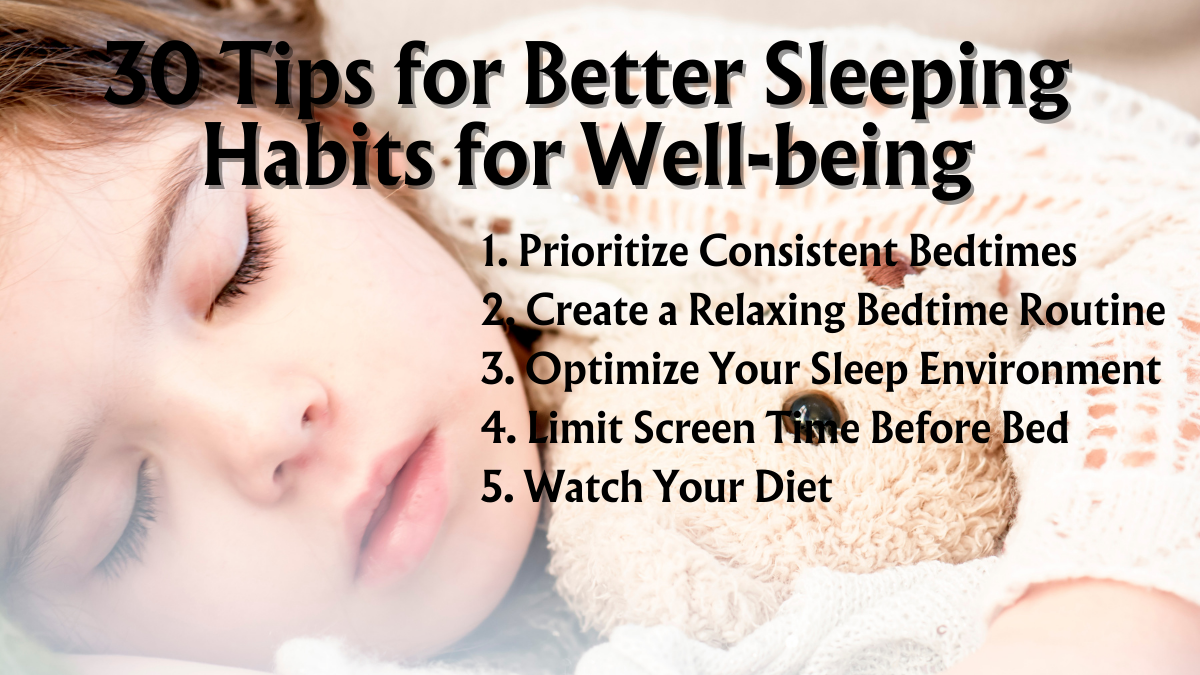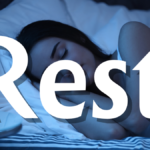30 Tips for Better Sleeping Habits for Well-being
Quality sleep is a cornerstone of overall well-being, impacting physical health, mental clarity, and emotional resilience. Here are 30 practical tips to enhance your sleeping habits and promote a restful night for improved well-being:
1. Prioritize Consistent Bedtimes
– Set a regular bedtime and wake-up time, even on weekends, to regulate your body’s internal clock.
2. Create a Relaxing Bedtime Routine
– Establish calming rituals before bedtime, such as reading a book, taking a warm bath, or practicing relaxation exercises.
3. Optimize Your Sleep Environment
– Keep your bedroom cool, dark, and quiet. Invest in comfortable bedding and pillows for an inviting sleep space.
4. Limit Screen Time Before Bed
– Reduce exposure to screens at least an hour before bedtime to minimize the impact of blue light on your sleep-wake cycle.
5. Watch Your Diet
– Avoid heavy meals, caffeine, and alcohol close to bedtime. Opt for a light snack if hungry.

6. Stay Active During the Day
– Engage in regular physical activity, but avoid vigorous exercise close to bedtime.
7. Manage Stress
– Practice stress-reducing techniques such as meditation, deep breathing, or journaling to unwind before sleep.
8. Regulate Room Temperature
– Maintain a comfortable room temperature, adjusting it to your preference for optimal sleep.
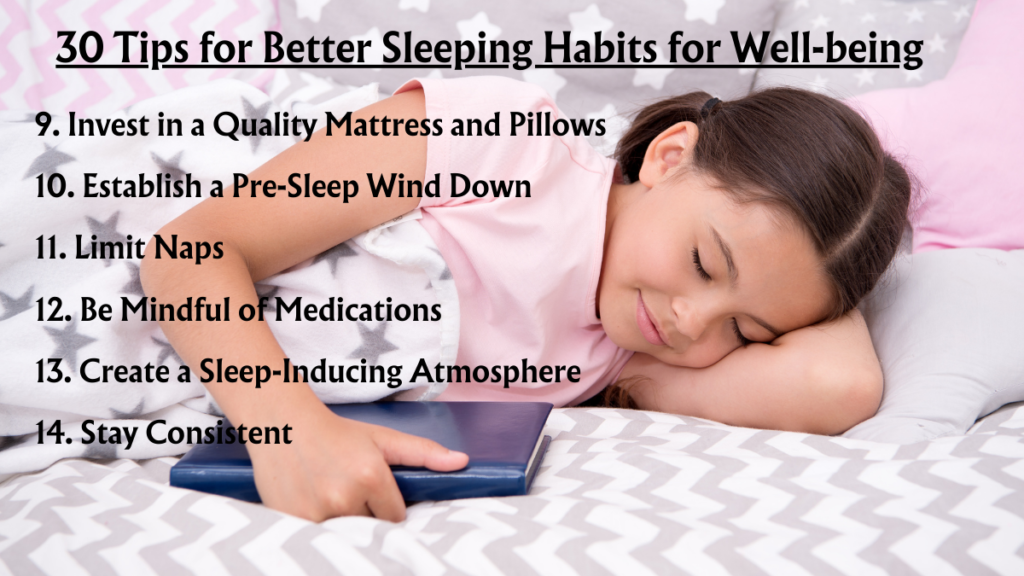
9. Invest in a Quality Mattress and Pillows
– Ensure your mattress and pillows provide proper support for a restful night’s sleep.
10. Establish a Pre-Sleep Wind Down
– Dim the lights and engage in calming activities during the 30 minutes before bedtime.
11. Limit Naps
– If you need to nap, keep it short (20-30 minutes) and avoid napping too close to bedtime.
12. Be Mindful of Medications
– Check with your healthcare provider to see if any medications you’re taking may impact your sleep.
13. Create a Sleep-Inducing Atmosphere
– Use calming scents like lavender or chamomile through essential oils or diffusers.
14. Stay Consistent
– Stick to your sleep routine even on weekends to reinforce your body’s natural sleep-wake cycle.
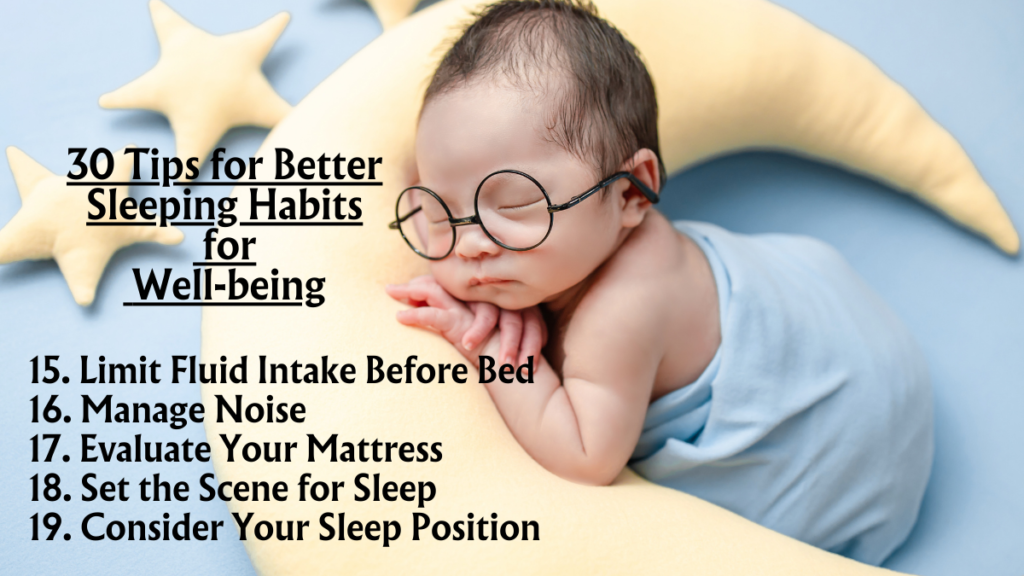
15. Limit Fluid Intake Before Bed
– Minimize the chances of waking up for bathroom trips by reducing liquid intake an hour before bedtime.
16. Manage Noise
– Use white noise machines or earplugs if noise disrupts your sleep environment.
17. Evaluate Your Mattress
– Replace your mattress if it’s over eight years old or if you’re not getting a good night’s sleep.
18. Set the Scene for Sleep
– Diminish light exposure in the evening, and let natural light in during the day to regulate your circadian rhythm.
19. Consider Your Sleep Position
– Experiment with different sleep positions to find the one that is most comfortable for you.
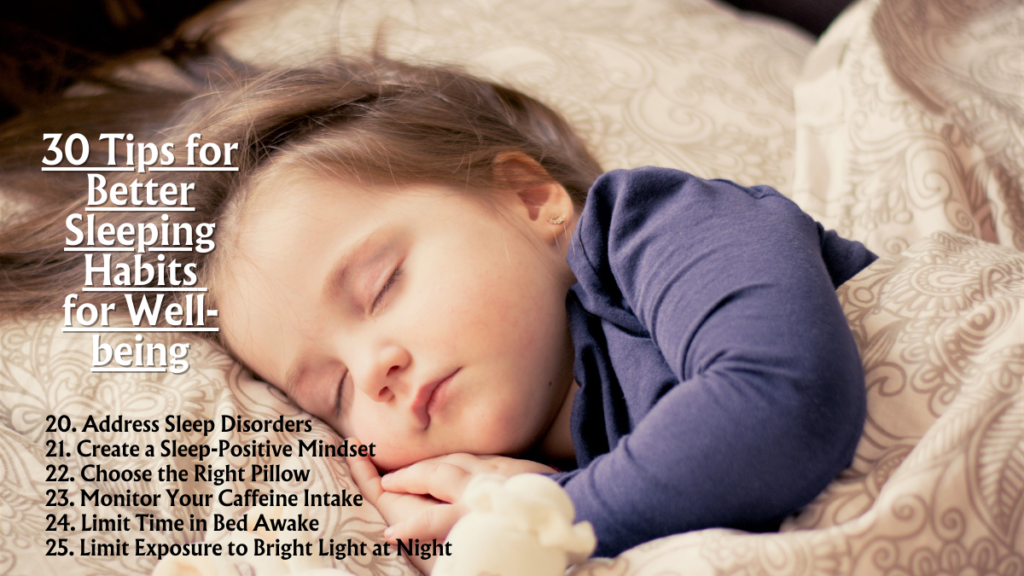
20. Address Sleep Disorders
– If you suspect a sleep disorder, consult with a sleep specialist for a comprehensive evaluation.
21. Create a Sleep-Positive Mindset
– Associate your bed with sleep by avoiding work-related activities in bed.
22. Choose the Right Pillow
– Select a pillow that supports your neck’s natural curve for a comfortable sleep posture.
23. Monitor Your Caffeine Intake
– Limit caffeine consumption, especially in the afternoon and evening.
24. Limit Time in Bed Awake
– If you can’t fall asleep within about 20 minutes, get up and do something relaxing until you feel sleepy.
25. Limit Exposure to Bright Light at Night
– Use dim, warm-colored lighting in the evening to signal your body that it’s time to wind down.
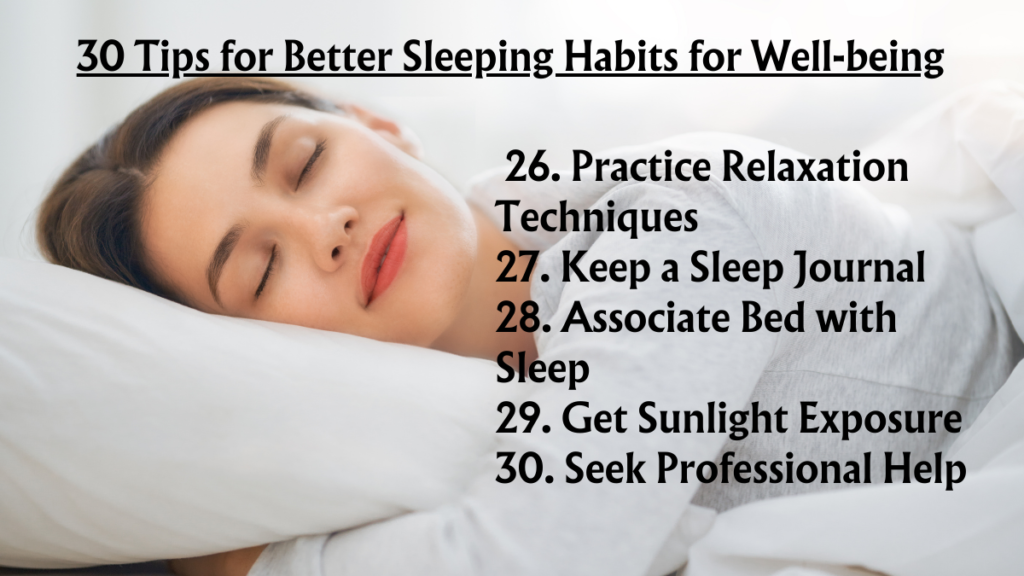
26. Practice Relaxation Techniques
– Incorporate relaxation methods like progressive muscle relaxation or guided imagery into your pre-sleep routine.
27. Keep a Sleep Journal
– Track your sleep patterns, habits, and daily activities to identify patterns and areas for improvement.
28. Associate Bed with Sleep
– Use your bed exclusively for sleep and intimate activities to strengthen the association between bed and sleep.
29. Get Sunlight Exposure
– Spend time outdoors during daylight hours to regulate your body’s internal clock.
30. Seek Professional Help
– If persistent sleep issues arise, consult with a healthcare professional or sleep specialist for personalized guidance.
Incorporating these tips into your routine can contribute to better sleeping habits and enhance your overall well-being. Remember, individual preferences may vary, so experiment with different strategies to find what works best for you.
Note: Consult with a healthcare professional if you have specific concerns about your sleep or well-being.
Proper Nutritional Diet and Rest (Sleep): Nurturing Your Body and Mind (Part 15/15)


